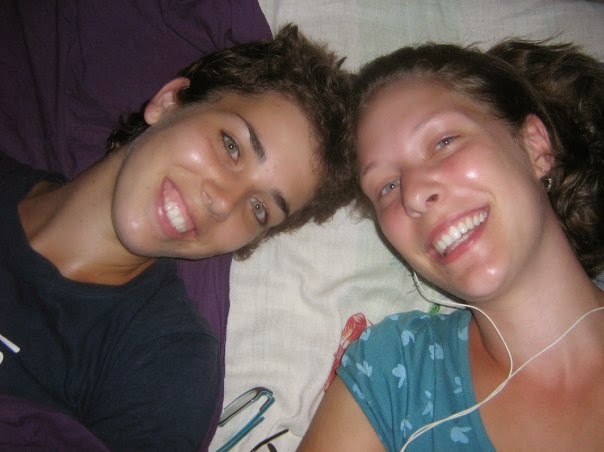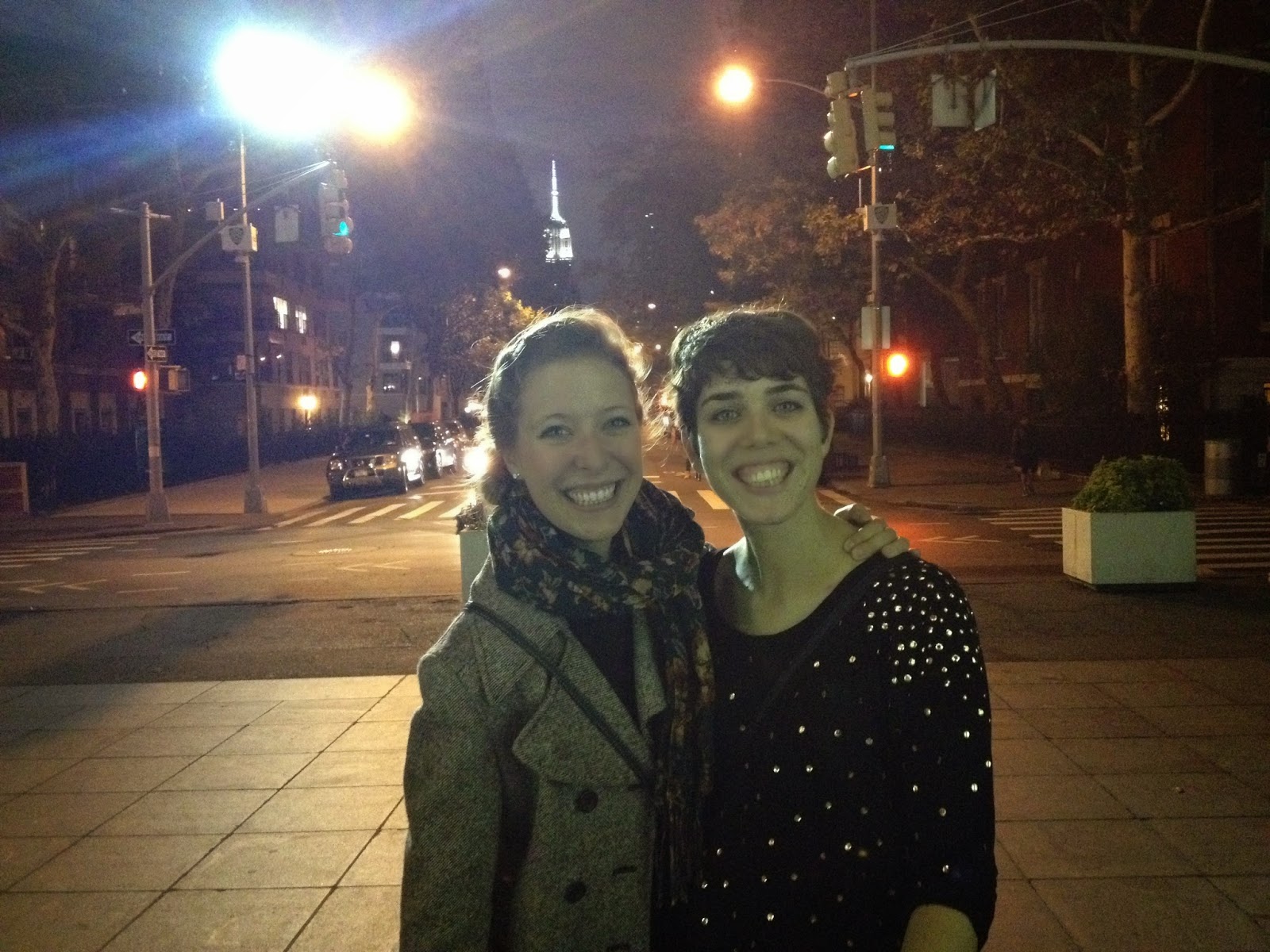
Greetings, dear reader, from this side of the pond! I write to you from my new HQ in Connecticut, which I will be calling home for the next 9 months. It's been a rather insane week since my violin and I upped sticks and landed here. But my bags are well and truly unpacked, I have a bank account and a 'cell' number - frankly, my green card must be just around the corner (I jest, of course)... Although it's very early days, I thought I would share my first reflections whilst they are fresh. Perhaps they will prove useful to those considering a similar venture overseas, or will ring true to those who have made a similar move. I'm sure I will laugh at these in months to come!
1) In the UK, I love black tea with milk. You can buy tea in the USA. Perhaps this is obvious. The thing that is trickier is finding a kettle! I have a whistling kettle in my flat that sits on the hob and makes me think of camping trips whenever I use it. The thing other Brits and I have decided is distinctly absent is squash (to American readers - diluting juice?). If anyone has a source in the USA, PM me!
2) Brits are (I believe!) famous for being very (overly?) polite. Most Americans I have encountered are also incredibly polite - just about different things. For example, I was profusely apologised to when the ATM I was asked to use to activate my bank account had a technical fault, and thus I had to move a WHOLE TEN FEET to a different ATM. Conversely, it has made me realise how silly some of the things we apologise for in the UK are - e.g. the thing where if you are walking towards someone and will bump into them if one of you doesn't move, which brits feel the need to apologise for. When really, no-one is at fault!

3) If going to the USA, always have a few spare dollar notes for tipping. In the UK I was used to habitually tipping in restaurants (10%, usually), unless the service was truly awful.... and that's about it. In the UK, I might round up a taxi fare if it was easier, or if the chat was good. Some British people tip their hairdresser, or at a coffee shop if they have change, but again I wouldn't say it's expected. Thus it is rather a culture shock to have to tip even the grumpiest taxi driver, and a rather heftier 15-20% in a restaurant. It has been explained to me that tips are a notable part of peoples' pay, and as such, if I have under-tipped anytime this week, I can only deeply apologise. I will improve!
4) I keep forgetting that tax is added to the price listed in shops. This means I am never ready with the right cash - big sorry to anyone who has been kept waiting behind me in the queue this week.
5) Having a washing machine in your flat is a novelty in the USA (I have one in my flat. Grateful ++. I am way not organised enough to coordinate myself around taking it all to a launderette).
6) I'm sorry, but queuing really is a British art form. This is based on not only this, but other world travels. Queues happen here too, but sometimes people barge in, and then everyone gets really angry. These two latter phenomena are simply not commonplace in the UK. And even if someone did barge in, we would probably look at our feet, mumble or grumble a little (and quietly) and that's about it.
7) Open-ness and friendliness are definitely two of the best adjectives I can use to describe the Americans I have met so far here. Despite me asking many moronic questions about how cell phone contracts work, how rental cheques are organised and how to send a letter to Europe, everyone has been incredibly helpful.

8) Getting some contacts together before I came here has been key to my early happiness. I didn't know anyone in this part of the USA before I moved here, and just told everyone and anyone I met in the preceding months that I was moving here and was searching for friends! It has been completely amazing how many people try and create contacts for you if you just ask, both before you arrive and once you're here; and I was amazed where such contacts ended up coming from. My first few days have been completely 'made' by such contacts, and I have been blown away by their friendship and kindness; and ultimately many of these were also new to the area and keen to explore, so it's a double win - new friends, and someone to explore with!
9) Say yes to everything. Thus far, I have met NGO workers at a cooperative BBQ I was invited to, painted in the middle of New York and drunk margaritas at the birthday party of someone I met that evening. Random, and wonderful.
10) Sometimes it's bloody lonely. It rained a flood on one of my first days here and I could barely leave the house. I didn't really have anyone to call at that stage, and no-one wanted to go outside anyway. I knew my family were busy. I didn't want to simply call a friend in the UK within four days of arriving - I didn't think that was a good coping mechanism so early on. But hey, that feeling passed. And I ended up having a wicked evening with new friends. I'm so lucky with what I'm doing, and I am trying to surround myself with reminders of that for future sad moments (which are inevitable, at home or away!).

I have, I guess, also been super lucky because as a Fulbrighter, I have access to the worldwide Fulbright community and more specifically the UK Fulbrighters based in nearby NYC who I met a few months ago. What an awesome bunch of people! I count myself as a very fortunate bean to be able to call them friends, and look forward to many more adventures over the coming months. However this could definitely be YOU! I didn't think I had a hope of getting a Fulbright, but it just shows you must TRY! So give it a punt! http://www.fulbright.org.uk
Overall, I think the main reflections from my fellow UK immigrants and I are a new appreciation of how it feels to be a 'foreigner' and how we are determined to bring the 'international hand of friendship' back to the UK.
In the mean time, I could not be more grateful for every email or message I have had from friends and family, wherever they are in the world, and to all the new friends I am making. Perhaps a good reminder to all of us to send a greeting to someone we know somewhere in the world, or someone we haven't spoken to for a while, and say hello to that new person at our place of work. It's never too late!




























